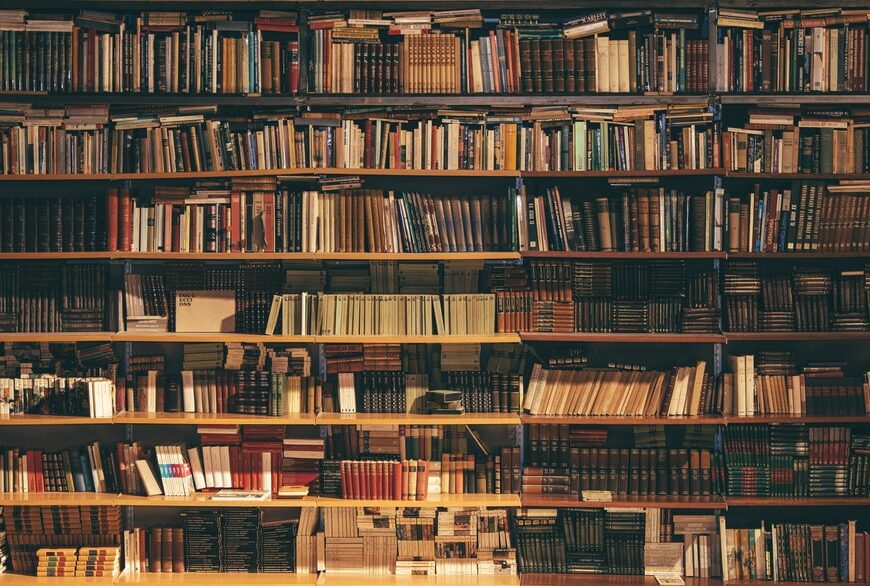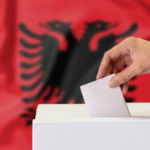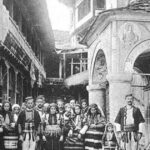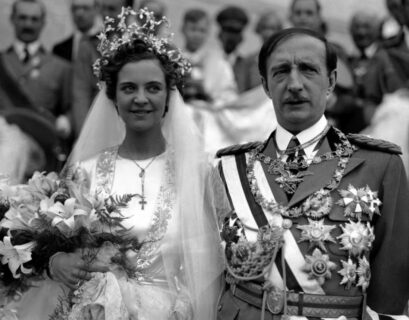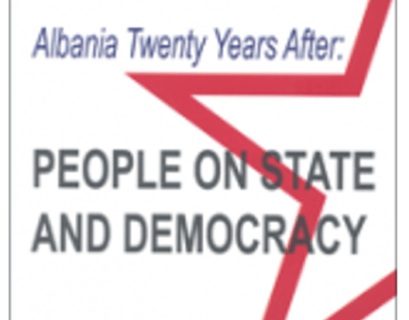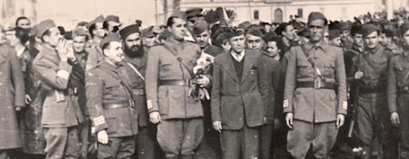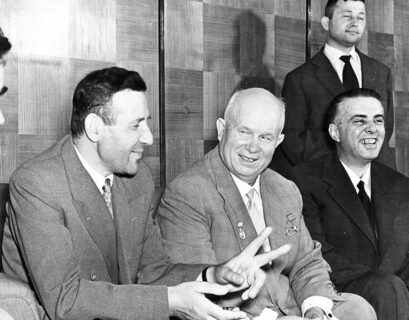By Kristoffer Leandoer

Shedding light through Tirana Times in a new and unique way on the life of Albania’s former dictator, Enver Hoxha, the author of the article is Kristoffer Leandoer, a Swedish writer, essayist, literary critic and poet, who has published more than 30 books. He was born in Stockholm 1962, where he worked as journalist, editor, publisher and translator from French and English. He is a former member of the Nobel Prize in Literature Selection Committee. He has two children. He has lived in Stockholm, Paris, Minsk and Hanoi. Since 2019, he lives in Tirana, being the husband of the Swedish ambassador.
Literature is catholic in the original meaning of the word, that is general and all-embracing. Books are for everyone. Literature belongs to anyone who wants a share in it, who is prepared to take it in and profit by it, no-one has the right to reserve certain works as their private property and claim to be the only one capable of understanding them. You can wake me up in the middle of night and I will hold this to be true, and to my dying day I will defend the right of freedom for everyone not only to write and print, but also to read what they want. Nevertheless, it comes as a shock to me when the title of a book with a special significance for me personally shows up on the inventory list of the library of the European dictator with the longest reign of them all. What, I ask myself, may Enver Hoxha, the man who proclaimed the world’s first and till now only atheistic state, have gotten out of reading Aurélia, the gentle French romantic poet Gérard de Nerval hallucinatory account of his travels in other realms of the mind? That book in the hands of that man; he didn’t have the right to read that book – that was my spontaneous reaction.
During 41 years, from 1944 until his death April 11th 1985, communist leader Enver Hoxha was in practice the absolute ruler over Albania. His personal whims, foibles and phobias came to dictate the life of an entire people and with time turned Albania into the third poorest country in the world, as isolated from the rest of the contemporary world as ever North Korea. The steadily growing paranoia of his world-view deprived the whole country gradually from all contact with the rest of the Eastern Bloc and kept the population fenced in.
In Hoxha’s Albania everything was either forbidden or inaccessible. Naturally, that makes it even more interesting to find out what he allowed himself. In the basement of the Albanian National Library, in the center of Tirana at Skanderbeg Square where thirty years ago an overthrown statue marked the end of dictatorship, the remains of the dictator’s immense library, which allegedly at one point amounted to 30 000 volumes, are kept. The director of the National Library, Piro Misha, was kind enough to put the inventory of this collection at my disposal – page after page of handwritten lists over the library of a dictator.
Hoxha was always reading. Unanimous witnesses portray someone who always came down to breakfast with another book than the one he went to bed with. His nocturnal reading habits found their way into his medical journals since doctors assumed they were detrimental to his digestion. His high esteem of books is also shown by his own production: Hoxha published 68 titles under his own name (with the help of ghost writers), only his memoirs in thirteen volumes stretch over 7 000 pages. He liked to be portrayed sitting at his desk with a pen in his hand, even though the pen was more likely to be used for signing death warrants than any literary creative work. In his youth, Hoxha spent a few years in Montpellier, Paris and Brussels. He was supposed to study but never took any exams, and his memoirs talk of important high-level contacts in the French communist party have proved impossible to confirm, but these years still made a remaining impression. On his return to Albania he worked as an extra teacher at the Lycée in Korça and French culture remained an ideal for the rest of his life.
His very last trip abroad took place in 1961. From that year and until his death, growing paranoia kept him imprisoned within the country borders together with his subjects, afraid of being poisoned, murdered or shot down while flying. He built his fear into the architecture of the country. Everywhere in the Albanian landscape you can see small concrete cupolas – the remains of the 170 000 or more bunkers that made up Hoxha’s line of defense against a hostile world.
In reality he was even more isolated, in reality even Albania was too big for him: a Tirana block three streets wide, called Blloku (The Block), was fenced off and reserved for the party elite. The privileged but frightful life in Blloku (almost anybody could fall from grace at almost any given moment) is described in Swedish journalist and writer Peter Kadhammar’s remarkable book Vi som var så lyckliga (“We who were so happy”), built on extensive interviews. There his world began and ended.
His wife Nexhmilje used the books to persuade him to move into a bigger house: “Finally, you may have room for your library.” Vila 31, still in place, was no luxury residence, the furniture mainly provided by prefabricated Italian low-end-to-middle-range chains. “I was so angry when I finally got to see it”, one Albanian said to me: “Was this why he kept us all oppressed? For nothing more than this – so ugly, tasteless and mediocre?” The exception to the rule was the lavish book shelves, built in situ in thirties style by the most skilled domestic artisans that could be found.
Even when isolation was at its peak and the supply of imported goods was completely cut off, there was one exception: France. Every year he ordered new suits from Paris, every year he was furnished with lists of newly published French books and sent for an extensive choice (the French government had a special allowance to keep Hoxha and three other Albanian communist leaders supplied with literature). To the very largest part, his library consists of titles in French. English, German, Russian literature – he read it all, only in French translation.
So, what does someone read who exterminated his own generation of party comrades, someone who never was able to forgive a favour or a good turn, someone who made sure that everyone who helped him on the way either were imprisoned or disappeared without a trace?
Above all, this is a library of classics. A library of world literature – Dante, Petrarca, Shakespeare, with a leaning towards the French: Racine and Molière, Rousseau, Voltaire, Diderot and Montesquieu, Hugo, Balzac, Flaubert, Zola and Daudet. The great Russians. Storytellers like Walter Scott and Dickens. But the collection does not make a stop at the realism that was prescribed by orthodox Marxist literature criticism. We have the great prose innovators such as Proust, Gide, Mann and Musil. He kept up with contemporary literature to a remarkably high degree. One can’t help to wonder what he made of Romain Gary’s endless reckonings with his own ego (Hoxha and Gary shared an extreme mother fixation), or Graham Greene’s and John Le Carré’s novels from the shadows of the cold war. Here are the surrealists led by André Breton. Hoxha was fascinated by lord Byron (who travelled in Albania), but also by more esoteric poets, Keats and Mallarmé. We have a number of writers who hailed communism – Brecht, Lukàcs, Paul Nizan, Aragon, but also writers who criticized it like Arthur Koestler. A substantial part of the library consists of titles that even the possession of would have earned other Albanians a prison sentence.
This is the library of a person constrained to voyages by proxy, an armchair traveler. When Hoxha ceased venturing on travels abroad, the world outside had to come to him instead in the form of literature. This is also the library of someone who values education and general knowledge. A large part of it consists of popular biographies of artists and composers, philosophers, writers, statesmen and inventors. Religion was evidently of personal interest to him, even if he was forbidding his countrymen from the practice of it: here we find studies of Christianity and Islam, church history and the biographies of the great reformers of the church. Philosophers from Plato over Hume, Locke and Hegel up to Nietzsche and even his contemporaries Heidegger and Wittgenstein.
A person of interest seems to have been Napoleon, whose name pops up everywhere in these lists. The study of Hitler seems to have consumed a lot of time as well, as well as Nero, Charlemagne, general De Gaulle and Che Guevara. Did he feel a need to compare himself?
This is also the library of a conspiracy theorist. You find a large number of books dedicated to secret societies, the Templars, the Cathars and the Assassins, books about the “secret” power of the Jesuits, books about the ties between Nazism and occultism, an abundance of books treating the Borgia family, the Kennedy murder, as well as Francis King’s classic Ritual Magic in England from 1970: all of this reading that must have nurtured and fed his growing paranoia.
The most human feature of his library is probably the large number of detective stories, titles by Agatha Christie and Simenon (even P. D. James Death of an Expert Witness from 1977), betraying the fact that his books also served as a sleepless person’s supply of nocturnal diversion.
Most of all, Enver Hoxha’s library is a testimony to the limited influence of literature. All those well-thumbed books on freedom and human value, Sartre, Éluard and Camus – and still we know that he sat in the sofa with Nexhmije enjoying screenings of when the secret police tortured their former best friends. Didn’t all this reading influence him at least a little bit? That is an endlessly depressing thought.
After the fall of communism, the dictator’s library was left to decay. In the year 1999 the book collection was carried down in to the basement of the National Library, now the intention is to make the collection generally accessible.
Piro Misha, the director of the National Library, asks me to pay attention also to what is missing from the list: classic Marxist theoretical literature. Neither Marx’s nor Lenin’s books are to be found here. On the other hand, you will find radical literature of later date, such as Lukàcs and Gramsci (who had Albanian ancestry). I can only find one title by Albania’s most renowned writer Ismaïl Kadaré, and that title in French translation. Yet we know that Hoxha followed that authorship very closely, and that the freedom of Kadaré was hanging by a single thread, probably saved by his growing international reputation: you get the impression that through decades there is a kind of game played between the two of them, the dictator and the writer, a game with extremely high stakes.
Which title in the dictator’s library is the most surprising? Without doubt a jazz-lexicon, Dictionnaire du jazz. And not only because jazz was a completely banned form of music in Albania. Given the number of biographies over the great romantic composers his interest in music ought to have been genuine, and one might imagine Hoxha appreciating the grandiose, even bombastic sound of Liszt or Berlioz. But the searching intonation of jazz musicians, the probing for a mutual language for the moment? Bearing Gérard de Nerval and Aurélia in mind, one probably has to accept that even the spiritual inwards listening tone of John Coltrane’s soprano may be part of a dictator’s belongings.
What we own simply doesn’t need to reveal very much of what we do.
Note: This article was primarily published at Tirana Times Newspaper.


